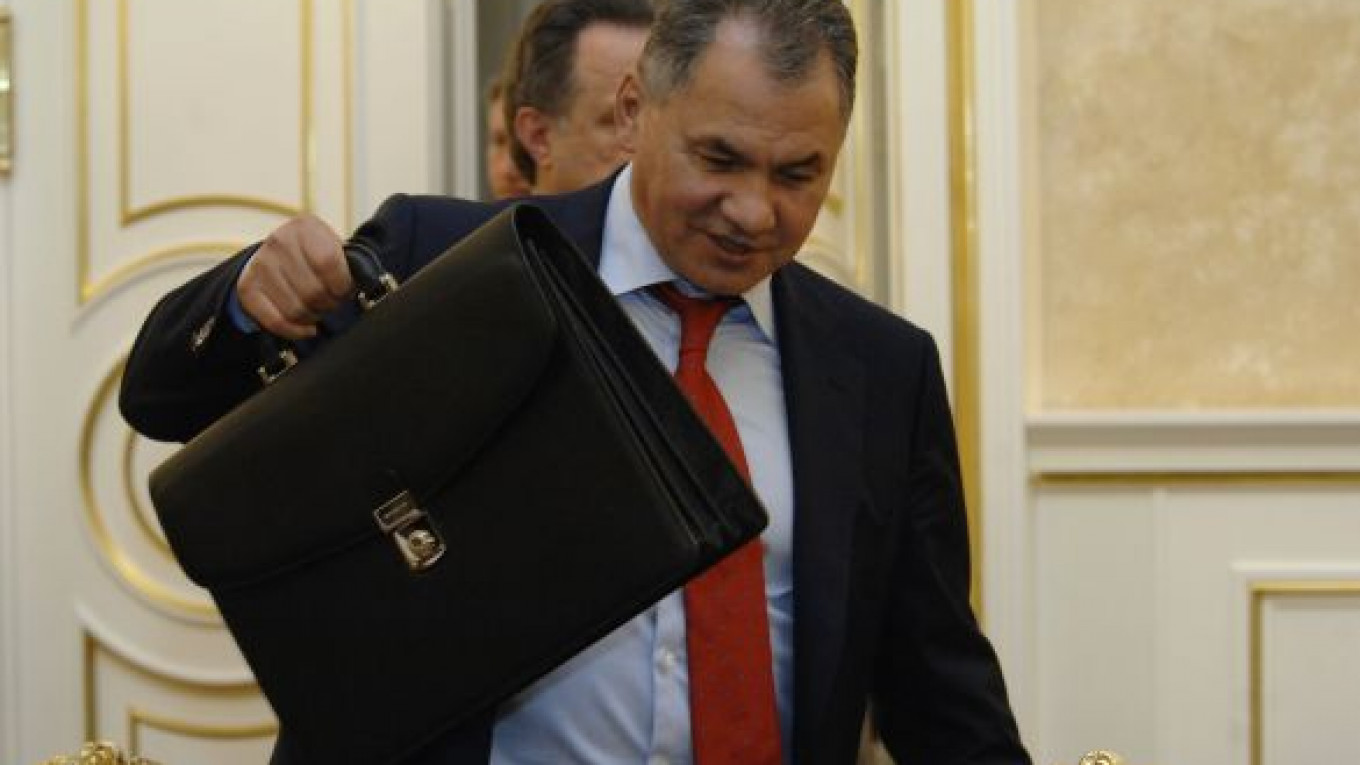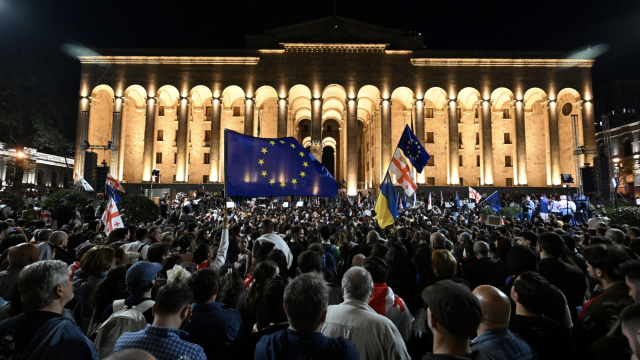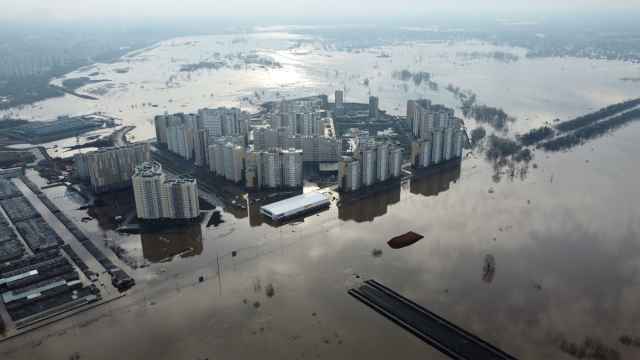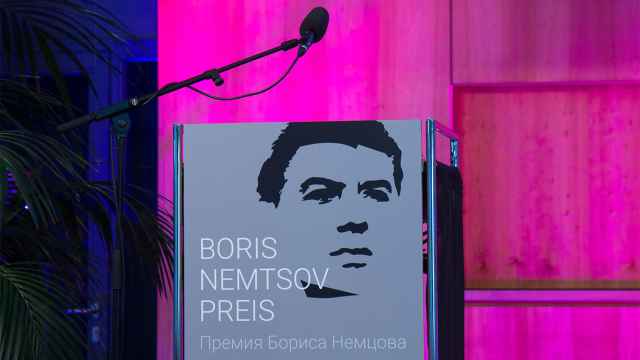President Dmitry Medvedev moved to dismiss the governor of the fish-rich Murmansk region on Wednesday while announcing that he had nominated Emergency Situations Minister Sergei Shoigu to be the next governor of the Moscow region.
The move involving Shoigu was widely expected, but the departure of Dmitry Dmitriyenko, who had been Murmansk's governor since 2009, fueled increased speculation that the Kremlin is pushing to shuffle the posts before a long-awaited bill allowing direct gubernatorial elections is passed.
The Moscow region legislature is likely to begin confirmation talks — considered a formality — on Shoigu on Thursday, Interfax reported, citing an unidentified legislative official. Shoigu is the most popular minister in the Cabinet with a 70 percent approval rating, according to a survey by the state-run pollster VTsIOM last year.
That stands in stark contrast to Dmitriyenko, analysts said. The former fisheries minister submitted his resignation, citing personal reasons, the Kremlin press office said, but he has often clashed with the local power players.
“He was an outsider who fell out with all the regional elites,” Yevgeny Minchenko, head of the International Institute of Political Expertise, told Kommersant radio.
Irina Paikachyova, a Murmansk human rights activist and member of the Yabloko party, said locals were irritated that Dmitriyenko and staff would fly back to Moscow on the weekends.
“It would be better if the governor were a local person,” she said.
Experts had rated Dmitriyenko's chances of staying in office as low, noting that his random shake-ups of the local leadership, conflicts with large financial and industrial groups as well as with local elites had made his position untenable.
At a January meeting on the effectiveness of public authorities, Prime Minister Vladimir Putin criticized the success of Dmitriyenko’s performance as “very, very low.”
Dmitriyenko's exit from office has been expected since the beginning of the year. Sources close to the Murmansk administration told Vedomosti in January that the governor had written a resignation letter and an order from Medvedev had been drafted. Dmitriyenko's spokesman denied the report at the time.
Dmitriyenko's departure follows the much higher-profile resignation of his predecessor, Yury Yevdokimov, who was forced to leave his post after his protege defeated a United Russia candidate in mayoral elections. Yevdokimov also openly attacked senior United Russia heavyweights, calling their behavior “shameful.”
The party's popularity is low in the region, garnering just 32 percent in December's State Duma elections.
Marina Kovtun, first deputy speaker of the Murmansk regional legislature, will act as interim governor until a permanent replacement is appointed. Sources told Kommersant that Natural Resources and Environment Minister Yury Trutnev is a top choice to become the next governor.
If appointed, Trutnev will oversee a region well-known for its mineral riches. It is home to the Shtokman gas field, which is being jointly developed by Gazprom and a number of international companies, including ConocoPhilips, ExxonMobil and Statoil.
Dmitriyenko's dismissal marks the third time that Medvedev has fired one of his own appointments, following the departure of Volgograd regional head Anatoly Brovko and Karachayevo-Cherkessia republic leader Boris Yebzeyev.
Medvedev, whose term expires in May, has promised that gubernatorial elections abolished in 2004 would soon be returned. But the legislation prepared by Medvedev's administration has so far passed only the first reading in the State Duma.






